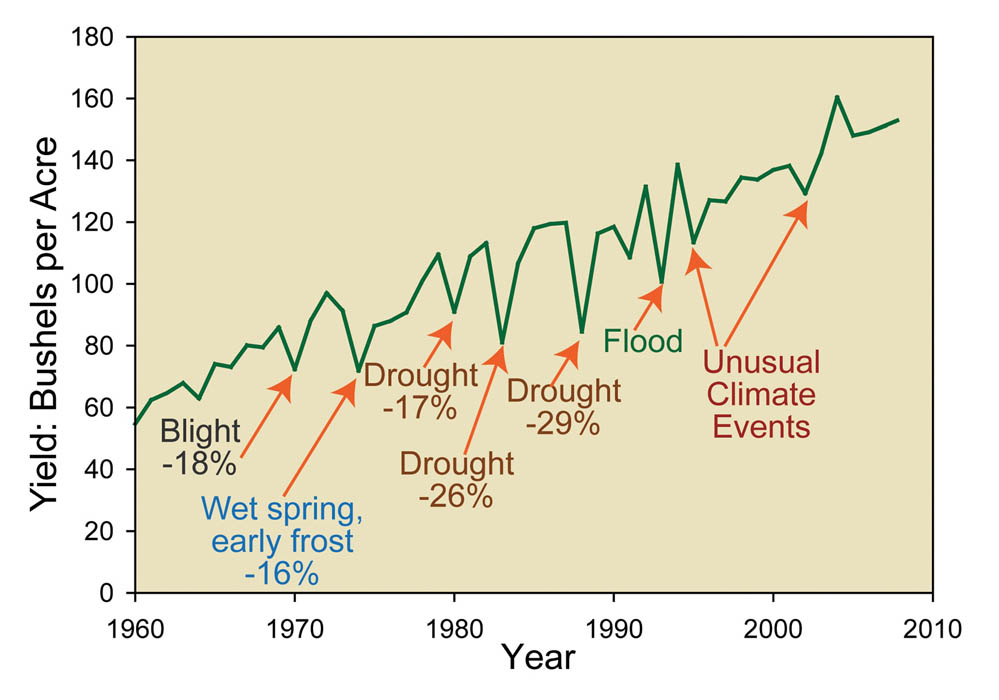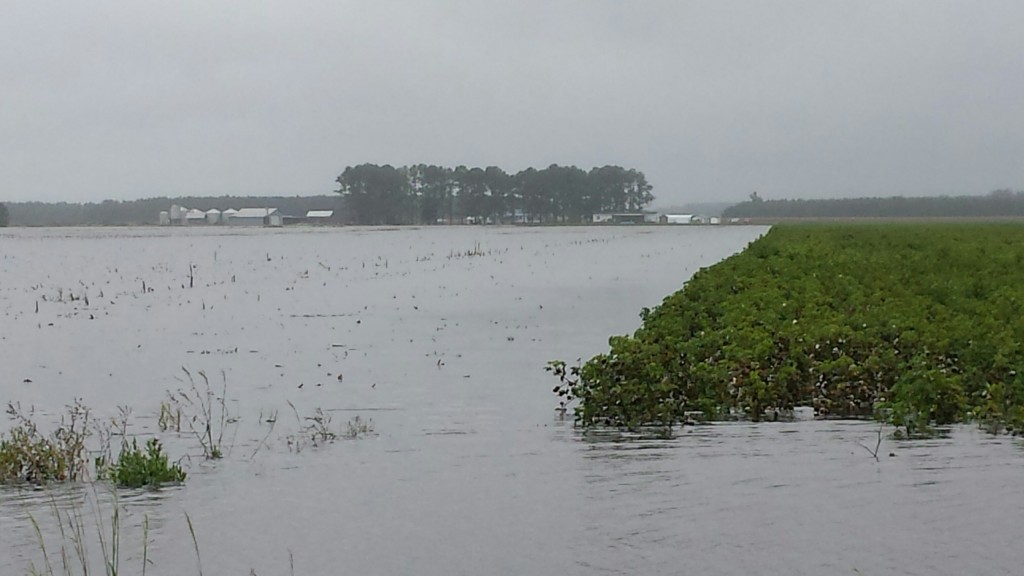As the 2016 Primary nears, all eyes and ears will be on the races for president, governor, and Congress. There’s no doubt that the presidential primary has been a bit of roller coaster. But in these uncertain times, we urge all North Carolina voters to make your voice heard and get out to vote on March 15th.
Last week we told you about the difficult year North Carolina farmers had in 2015. This week we want to show you how that bad weather has converged with a few other factors to put many farmers in a really tight spot as they prepare for the 2016 growing season.

First of all, weather is always a wild card in agriculture. Here’s a chart (Figure 1) showing how weather events have affected US corn production over the last 50 years. Nearly every decrease in crop yields can be attributed to some adverse weather event. Farmers certainly understand this and do everything they can to manage risk, but there’s only so much they can do when extreme events occur.
There’s no such thing as a perfect year when it comes to agriculture, especially considering the diverse geography and climate of our state. There will always be uncertainty when it comes to the weather—will we have a freeze, drought or flood? But in 2015 we had all three in a single year.
We could spend days discussing the role weather played in crop loss last year, and you’d be hard-pressed to find a farm that didn’t experience some sort of weather event. But today, we’ll focus on the Waterlogged Fall of 2015.
If you need help remembering what we’re talking about, this picture should help jog your memory.

In a special edition of North Carolina Farm Bureau’s Capitol Roundup, NCFB’s State Legislative Director and Legislative Counsel Jake Parker provides information about how a recent legal decision has forced some changes to North Carolina’s Congressional districts, and how those changes have thrown a wrench in the state’s primary election schedule.
Last week, we explained why the timing is right for the Connect NC bond. This week we want to talk about a couple of the projects included in the bond that are important for North Carolina agriculture.
Those projects are the Plant Science Initiative at NC State University and a new, co-located laboratory facility for the NC Department of Agriculture and Consumer Services (NCDA).
But first let’s take a moment to consider why the General Assembly included these agriculture-based projects in the bond package. Agriculture is our state’s number one industry, generating about $78 billion a year. Nearly one out of every five jobs is related to agriculture. Our state leaders know that a thriving agriculture economy means a thriving North Carolina economy.
And so they included these two major agriculture investments in the Connect NC bond.
 The Connect NC bond is coming to a ballot box near you on March 15th! That’s right, the $2 billion bond referendum will be on the ballot when you vote in North Carolina’s primary election. Some of you probably know a little bit about the bond, but many of you may not.
The Connect NC bond is coming to a ballot box near you on March 15th! That’s right, the $2 billion bond referendum will be on the ballot when you vote in North Carolina’s primary election. Some of you probably know a little bit about the bond, but many of you may not.
So what is the Connect NC bond, why do we need it, and how does it work?
Welcome to North Carolina Farm Bureau’s blog—The First Furrow!
First things first: what about the name The First Furrow?
When a farmer plants a field, the first row—the first furrow—must be straight; it cannot waiver or stray. This is because the first furrow is a guide for the rest of the field. If it’s crooked, the rest of the field will be crooked, too. To make sure the field is planted correctly, the farmer has to pay attention to what he’s doing and focus on what’s ahead.
As with planting a field, when talking about agriculture policy, the first furrow has to be based on good, reliable information. If a conversation starts with inaccurate or misleading information, it’s tough to get it on the right track.
